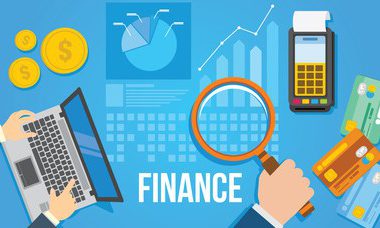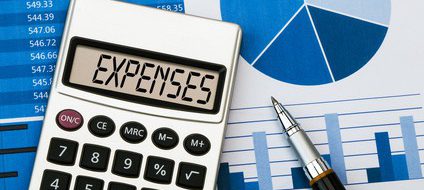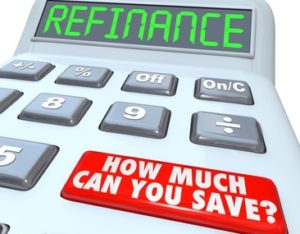
by admin | Bankruptcy, Consumer Proposal, Credit Counseling, Credit Repair
 Saving is always better than spending if we are to have a viable and secure lifestyle. While most of us certainly do know this age old adage, yet seldom follow it, which unfortunately leads to our very obvious detriment. Yes, most of us have made sporadic attempts at saving our salaries and funds and do manage to do precisely that, only to splurge all over again and its back to ground zero. This holds eve truer if we have just survived a really bad debt trap. Once the debts have been repaid, we make a solemn promise with ourselves to never ever go down that road again. Only to fall down the same slippery slope because not having debts means we are financially free…. Free that is, to incur more debts, that is we go off on a spending binge.
Saving is always better than spending if we are to have a viable and secure lifestyle. While most of us certainly do know this age old adage, yet seldom follow it, which unfortunately leads to our very obvious detriment. Yes, most of us have made sporadic attempts at saving our salaries and funds and do manage to do precisely that, only to splurge all over again and its back to ground zero. This holds eve truer if we have just survived a really bad debt trap. Once the debts have been repaid, we make a solemn promise with ourselves to never ever go down that road again. Only to fall down the same slippery slope because not having debts means we are financially free…. Free that is, to incur more debts, that is we go off on a spending binge.
Think of it alone the lines of eating a healthy diet, till you have achieved your desired weight loss and can put on your old clothes with pride, you keep on dieting with grim determination. Once that has happened, you have no need to diet and you revert to your old eating habits. And before you know it you have ballooned and now pack even more weight than you did even before you started dieting in the first place.
Here are a few pointers to help ensure that you are able to save your money, rather than being in debt.
1. If you have debts, you need to pay them off first thing!
Yes, paying debts is a very, very important part of your financial cycle, but would it not be nicer if you never had debts to begin with? Owing people money and having them ask you to pay back consistently is not really a nice feeling, is it? However, if you have savings, then even if you were in debt all you would need to do would be to dip into your savings and get rid of your debt, once and for all.
2. Save something for a rainy day
Always try and save at least 12% of your total monthly earnings irrespective of what your earning actually may be. Here the key buzz word is ‘consistency.’ If you save for a few months, only to blow away all your savings on the latest model 7.1 surround sound system, than should there be a real emergency that electronic gadget would not be of much use. However, doing so for years would mean a sizable nest egg that you may then invest and thereby earn from your savings. This way, you would be able to buy from the ‘earnings from your savings’ rather then taking loans that you could ill afford to pay.
Conclusion
Yes, it is not easy to curb your expenses and live on only a portion of your earnings, month in month out. You may have to restrict fine dining to a bare minimum and even cut down on your entertainment related activities. But, in the long run, this is the best way to live a relatively debt free life.

by admin | Bankruptcy, Consumer Proposal, Credit Counseling, Uncategorized

Not all of us have what it takes to spend within our means, and therefore before we know it, we are head over heels in debt.
However, there is a way around this problem. And, that is ’budgeting’, i.e. allocating budgets to all your important needs as well as those that are not on the top of the priority list. This way you would be able to make sure that all of your wants and desires are taken care of in order of their priority and nothing is ignored in the long run.
However, budgeting requires a certain amount of discipline and finesse. These are a few tips to help you learn this art:
1. Track your Spending Habits
This step is a sort of ‘prequel’ to budgeting. Before you commence making a budget try and track where all your hard earned money is actually going, remember every single dollar spent has to be clearly noted down, because in the long run, every individual penny eventually adds up. An innate understanding of your day to day expenditures would help you come up with a budget that is based on optimizing your spending patterns. Make sure that before making a budget, you track your expenditures for at least a four week period.
2. Set Realistic goals
When preparing a budget, think along the lines of a diet and exercise regimen. It is easy to make‘plans’regarding healthier eating habits and jogging four miles every day, but executing those plans means a harsh reality check. Even if you manage to do it for a few days, the chances are you will eventually stop. The same goes for your budget. If you curtail the expenses you incur on your hobbies and entertainment almost completely, the odds are you will succumb to your original spending habits in a big way. Try and cut down on your leisure spending by around ten percent per month (instead of going to the cinema three times a week, makes it twice).
Once you have successfully managed that, then make another cut of around the same percentage, and then don’t go below that for at least a few months.
3. Say no to Credit Card Spending
The thing about credit cards is that they allow you to spend money that you don’t really have. Use them often enough, and they are a sure fire recipe for landing you into debt or worse and before you know it, you are more concerned with making minimum payments than with taking care of your actual day to day needs in an attempt to keep the collection agents at bay.
The simplest means of avoiding credit card debt is to refrain from using them in the first place. However, they are indeed handy things to have in case of emergencies. If that is what has happened, make the payment of these cards a first line priority so that you would not be caught in a vicious debt trap.

by admin | Bankruptcy, Consumer Proposal, Credit Counseling, Uncategorized

Sometimes things happen that we have not planned for, (such as medical emergencies, loss of overall household income, excessive credit spending etc.) all of which lead to very high expenses and we have no idea how to stem the tide. Month after month, our bills become steadily bigger even as our income remains static.
This is truly a worrying development, and therefore before we know it, we are deeply in debt and there seems no way out of the quagmire.
But, there is light at the end of the tunnel. With a bit of fiscal discipline you just might be able to cope with those troublesome runaway expenses. Here are a few ideas:
· The ‘top three expense’ method
Runaway expenses are an acquired trait that, given time, can be dealt with effectively. It is simply a matter of finding out just what you biggest money drains may be.
As a rule, few people include basic necessities as their biggest expenses. Mostly the money is spent on leisure items and entertainment such as eating out, clubbing, and buying extra clothes, electronic appliances and the list goes on. Once you have figured out which categories are unimportant and yet a big drain on your resources, simply curb spending in those categories and before you know it, your runaway expenses would be firmly in control.
· Understand the importance of savings
Runaway expenses exist when we spend all (or even more than what we earn) on what ever we deem necessary.
The opposite of spending is saving i.e. spending less than we earn so as to create a ‘nest egg’ for any future eventualities. However, saving is easier said than done. If you think that you would be able to save any residual leftover amount from your monthly income, think again. If you are truly serious about saving your earnings, then deduct a certain amount at the ‘beginning’ of the month rather than waiting for the month to end. This savings amount should be separated from your regular expense money and preferably invested.
· Involve other people in your game plan
Many times curtailing excessive spending is a collective rather than an individual effort. If you feel that you cannot do it alone, it is always better to involve your friends, family and other people you trust into this initiative. Talk to your kids and explain to them why it is not possible to go out for outings as much as before. Take your spouse into confidence. And, if you are part of a free wheeling overspending crowd that laughs at budgets and savings plans, may be you should consider spending less time with them.
· Be wise – prioritise
This age old adage is still as refreshingly applicable today, as it ever was before. You simply have to set your priorities straight if you are ever going to get the better of your runaway expenses. Your hard money would continue to bleed if you decide that you simply must have that brand new smart phone that has been recently launched into the market. Such spending habits, when your financial means are clearly not enough to support them, could spell disaster in the long run.
by admin | Bankruptcy, Consumer Proposal, Uncategorized

Credit and specially credit cards are often touted as the best possible means of achieving your life’s goals. They are often considered a means of ‘empowerment’ that allow you a degree of financial freedom that would hitherto not be possible if you were to spend entirely within your earnings.
However, nothing could be further form the truth since excessive usage of credit cards is a sure fire route to penury. The reason being that financial institutions that offer you credit lines and cards do not do so out of a sense of altruism but hard business sense.
Remember, everything that you purchase has to be paid back, with interest (in the literal sense.) When you are buying that latest LCD (liquid crystal display) TV or brand new car on your credit card, you may not remember that the money that you have spent was not yours to be begin with, but rather a loan that has been given to you so that the lender can make a profit off you in the long run.
If you are not careful, your bills will steadily accumulate and the net result would be incessant calls from your creditors who would be hounding you day in day out so that they could recover their dues. Slowly and gradually, the quality of your life would erode and you would be faced with the difficult prospect of placing your credit card debts as your most important priority. This will make everything else, even basic day-to-day expenses that are necessary to run your household such as food, energy bills, home lease payments, school books etc. end up being on a lower priority level. If this state of affairs continues long enough, you just might end up facing insolvency and may even have to file for bankruptcy.
This means that you would end up forfeiting almost all your property as well as having to face a steep downfall in your overall credit ratings.
Of course, it does not have to be this way. All you need to do is to say no to those glitzy adverts that try and make you believe that credit cards and loans are the panacea of all your financial woes and the short cut to your dreams coming true. If you were to believe that, then there is a very strong probability that the dreams may turn out to be veritable nightmares.
Though it may not be easy at first, but for your financial health it is very important that you get rid of your debts first and foremost. But even more important than that is getting rid of the ‘mindset’ that might lead to a debt trap i.e. using credit in any form as a means of ‘supplementing’ your monthly income. Remember, nothing can be further from the truth since credit is not a supplement but a burden on your existing financial resources.
If you find that your income is not enough for your expenses, then learn to budget your resources till each and every item in your priority list has been catered to and moreover, it has happened without you taking any unnecessary loans.
by admin | Bankruptcy, Consumer Proposal, Uncategorized

Not all of us are born with the financial acumen to remain debt free for life. Sometimes we simply want more than we earn or just want to ‘keep up with the joneses’ or try to impress our spouse or other people close to us and before we know it, we have accumulated debts that we are quite simply not able to pay back.
Alternately, there may be a medical emergency or bad business decisions that just might lead to looming insolvency.
Bankruptcy in Canada
Stripped of all the hyperbole, the core idea behind personal bankruptcy in Canada is that you essentially have to surrender all your property to a ‘licensed insolvency trustee.’ This is done to get rid of all your debts. The trustee would help to ensure that your property is sold off and its proceeds are used to help your creditors recover their investments. Depending on which province you live in, certain bare essentials may be left to you so that you are able to continue living a reasonably normal life. The trustee will be responsible for making sure that neither you nor your creditors are treated unfairly.
Legal Aspects
If you were to go bankrupt in Canada, it is good to know that it will not have any direct financial repercussions on your loved ones such as husband, wife or common law partner etc. This is because your loans and your property are your very own (unless any loan is jointly owned or a close family member is a guarantor of your loan). This is why only ‘your’ personal property would be taken into consideration when you file for personal bankruptcy.
The Surrendering of Property
This is perhaps one of the worst things about bankruptcy. Most of your property may well be confiscated and sold off and its proceeds given to the creditors. To see your life’s hard work and assets being handed over to others is not an easy pill to swallow. But, look at the bright side. Your creditors will not continue to hound you anymore.
Credit Rating
It is unwise to think that bankruptcy would not affect your credit ratings. However, it is not the end of the world when it comes to applying for fresh credit. In fact, you will continue to receive credit card and loan offers in your mail (however, the fine print would have changed and they would be charging you more interest than ever before).
Yes, bankruptcy has a severely negative impact on credit ratings, however, if the alterative is that you are being mercilessly hounded by creditors and you are lagging behind on almost all your monthly payments, then it is an axiomatic assumption to realize that your credit ratings are going through a downward spiral in any case.
Remember, bankruptcy is not the end of the road at all. Hundreds of thousands of Canadians go through it every year and simply restart their lives all over again. In time, both your credit ratings as well as your property will be back to the position they were before.
by admin | Consumer Proposal, Credit Counseling, Uncategorized

It is an axiomatic assumption that large families tend to have larger budgets. In fact the larger the family the more its expenses. Moreover, before you know the runaway expenses may well spell financial ruin for you and as a direct consequence, your loved ones will be affected as well. This is why it is imperative to have a properly planned budget in place so as to ensure that you are safe from any unforeseen financial emergencies in both the short as well as the long term.
1. Cash is in
Its altogether very tempting to use credit to buy things that we can’t afford at a particular point in time. After all the ‘buy now pay later’ aspect of credit cards make life easy, right? Wrong! Basically, using credit cards to buy stuff you cannot afford effectively means you just might end up driving yourself into penury. If you are not in a position to afford something on your current income, buying the same thing and then paying interest to your credit card service provider is certainly not a good idea.
In order to avoid cards, make sure you do not carry them with you in the first place.
2. Categorize your budgets
Alternately, you may draw your salary at the beginning of the month and then allocate portions of that amount to specific mini budgets such as grocery shopping, children’s entertainment, eating out etc. Once the amount for that mini budget has been spent, try not to use amounts meant for other contingencies to ‘refresh’ that particular budget.
3. Eat at home
Eating out arguably makes one of the biggest dents on any large family’s budget. To curtail these expenses involve your children when you go grocery shopping and (within limits) allow them to buy what they like. You may also consider making weekly lunch and dinner menus with individual family members being allowed their own choice of a meal on specific days. This would not only be healthier for the overall fitness of your family, but would give your wallet some relief as well. Moreover, it would cement your family’s ties as well, if all meals were to be taken together.
4. Teach your children to save
Kids as young as seven or eight may be taught the value of saving so that they do not treat you as an unlimited expense account. You may give them a weekly allowance and make them responsible for their own entertainment expenses. You might also encourage them to keep an ‘expense journal’ so that they are able to realise just when and where they have been spending their money.
5. Set priorities
Make sure that you have your priorities right. Basic household expenses such as energy bills, children’s education and groceries are your first and foremost priority followed by contingency saving. Only after the basic requirements have been met, should you feel free to go and splurge on that giant screen LED 3D TV or other consumer items of a similar nature.

 Saving is always better than spending if we are to have a viable and secure lifestyle. While most of us certainly do know this age old adage, yet seldom follow it, which unfortunately leads to our very obvious detriment. Yes, most of us have made sporadic attempts at saving our salaries and funds and do manage to do precisely that, only to splurge all over again and its back to ground zero. This holds eve truer if we have just survived a really bad debt trap. Once the debts have been repaid, we make a solemn promise with ourselves to never ever go down that road again. Only to fall down the same slippery slope because not having debts means we are financially free…. Free that is, to incur more debts, that is we go off on a spending binge.
Saving is always better than spending if we are to have a viable and secure lifestyle. While most of us certainly do know this age old adage, yet seldom follow it, which unfortunately leads to our very obvious detriment. Yes, most of us have made sporadic attempts at saving our salaries and funds and do manage to do precisely that, only to splurge all over again and its back to ground zero. This holds eve truer if we have just survived a really bad debt trap. Once the debts have been repaid, we make a solemn promise with ourselves to never ever go down that road again. Only to fall down the same slippery slope because not having debts means we are financially free…. Free that is, to incur more debts, that is we go off on a spending binge.









